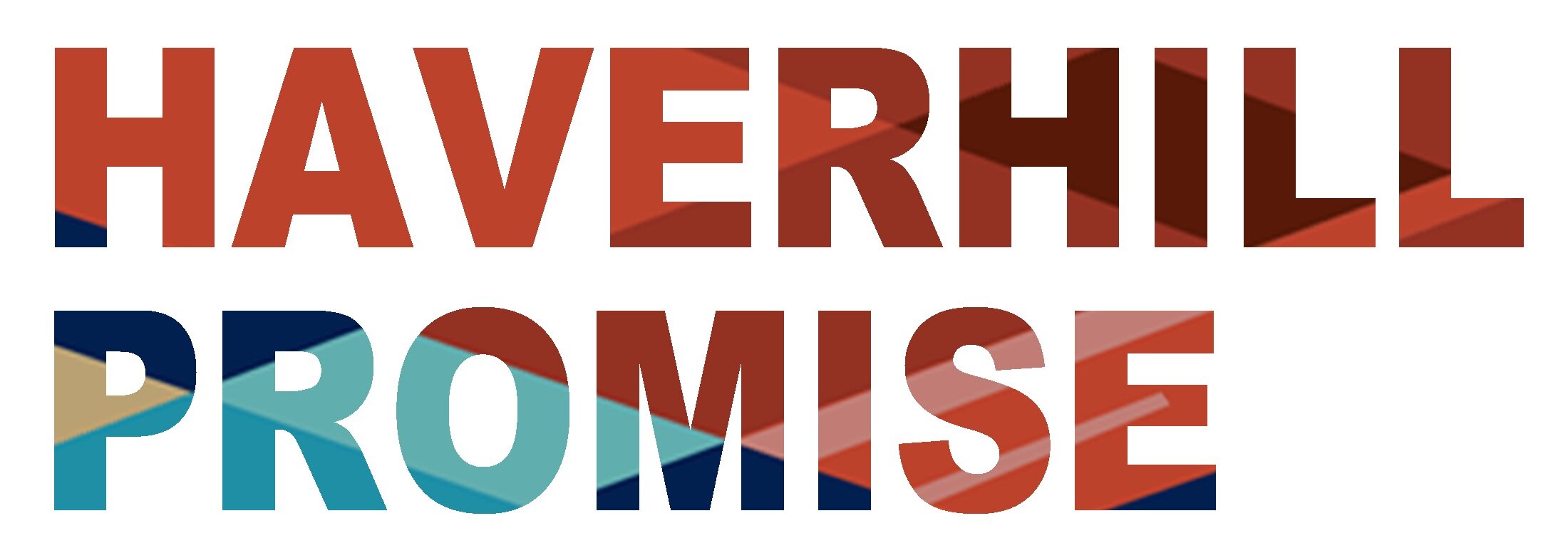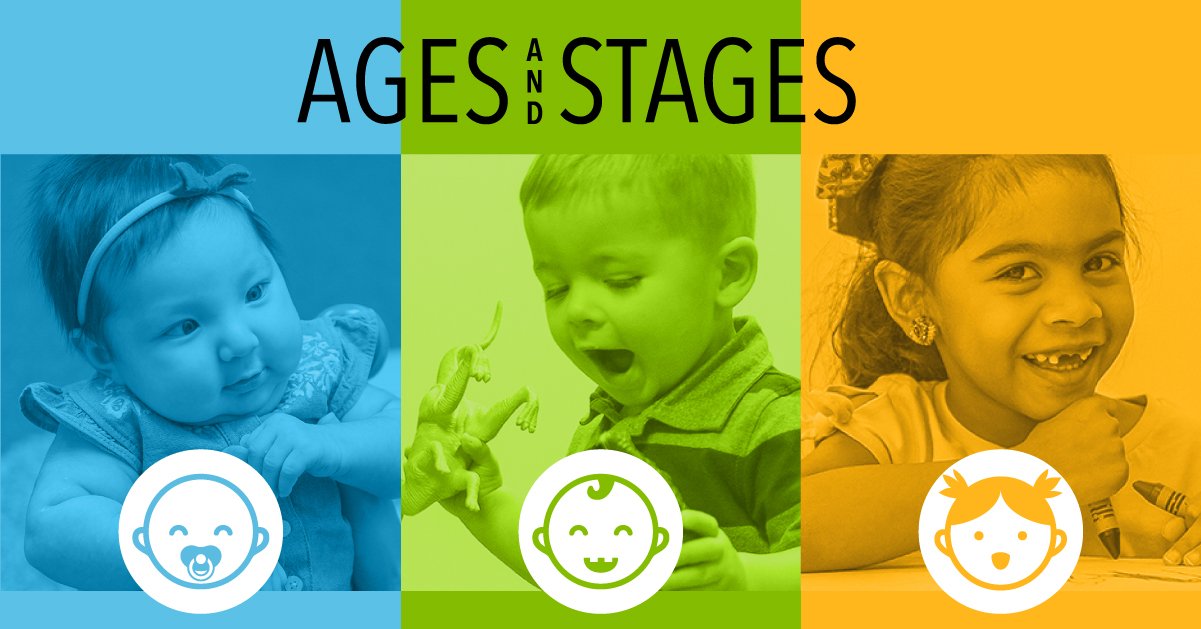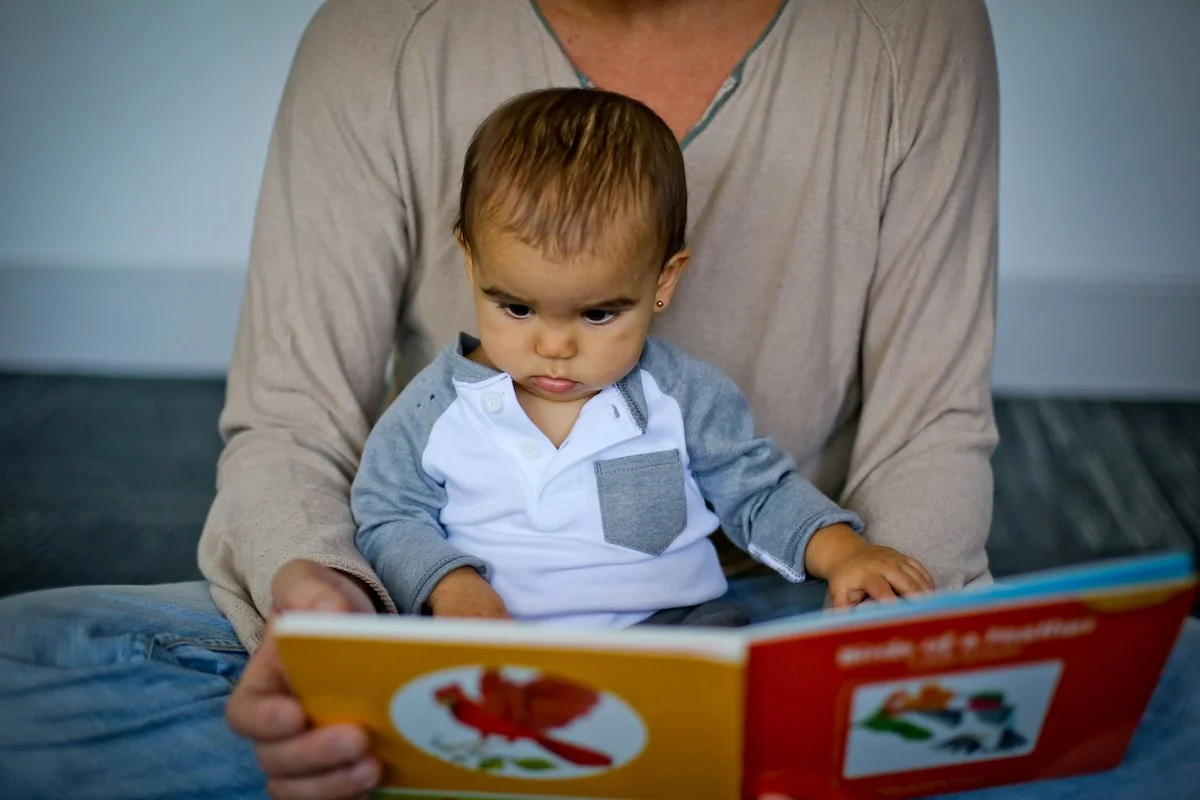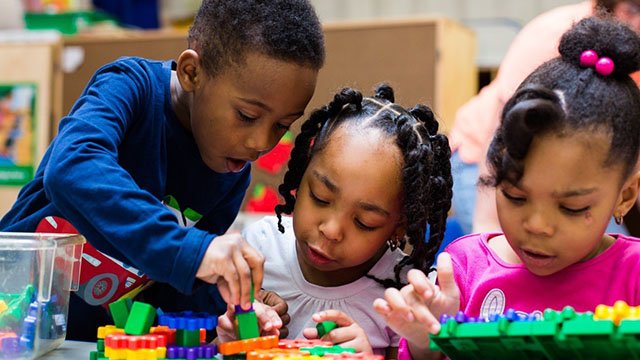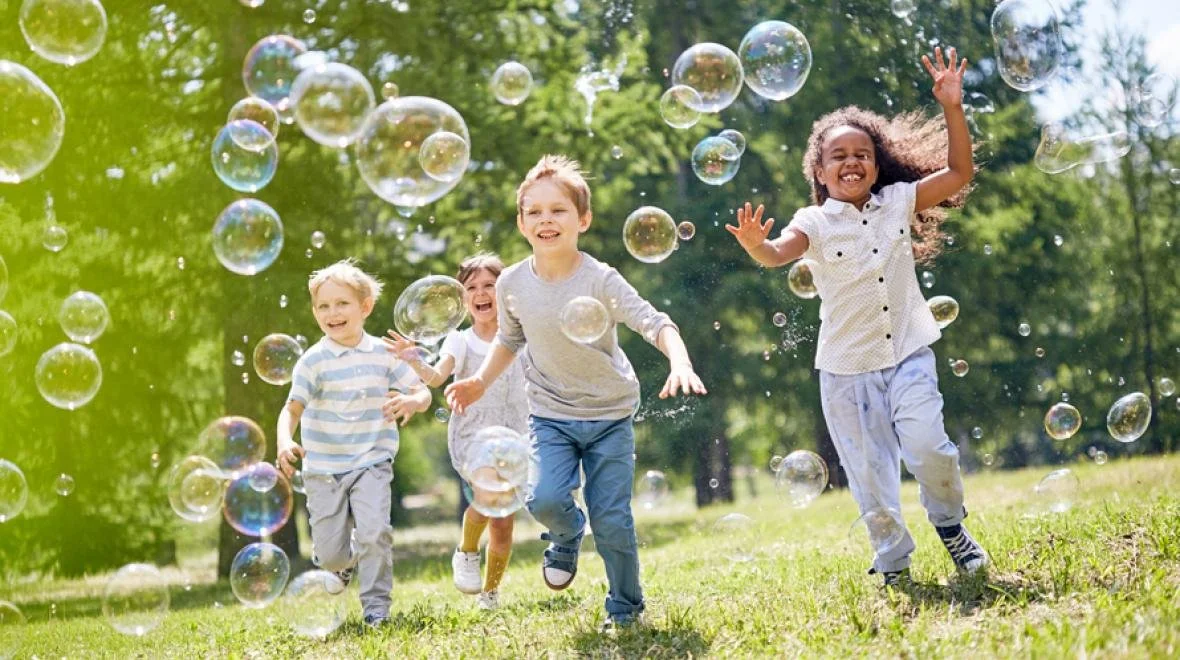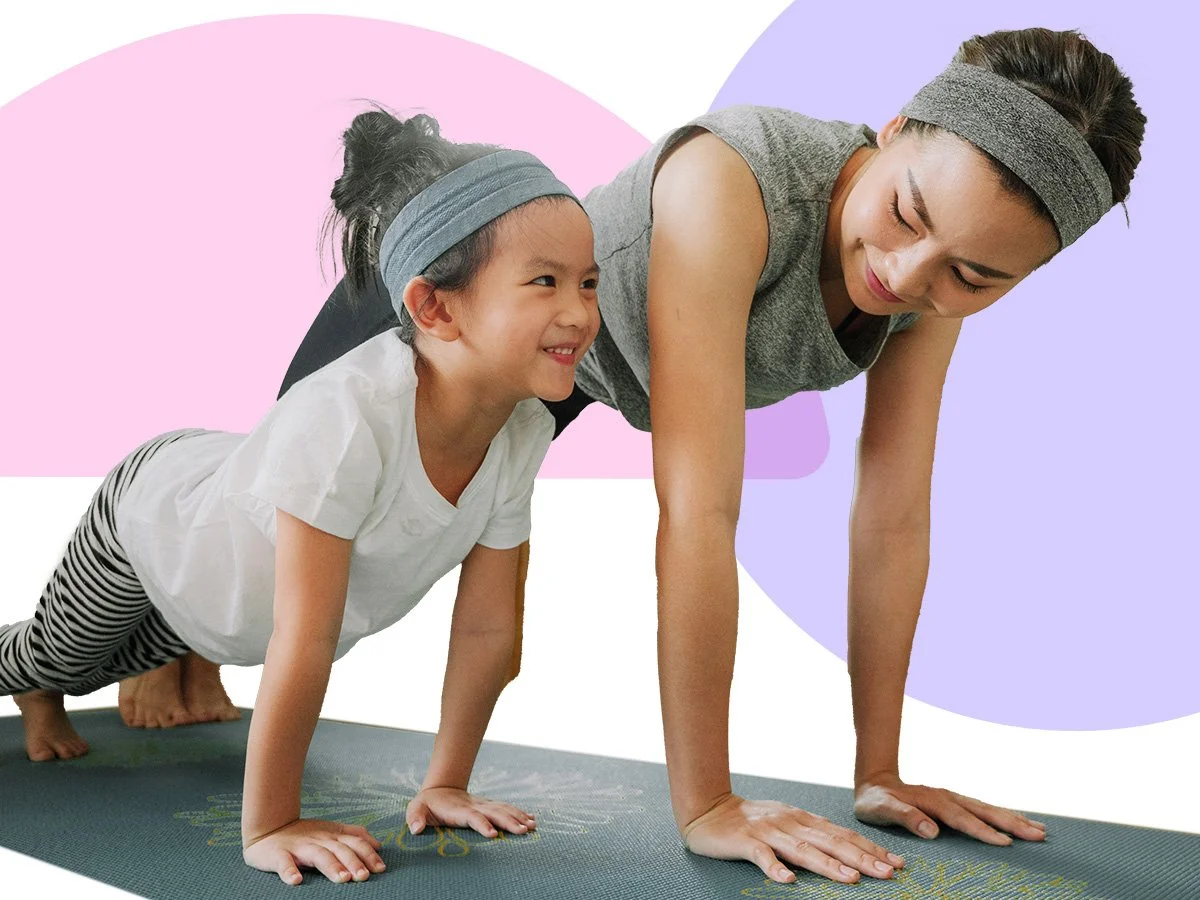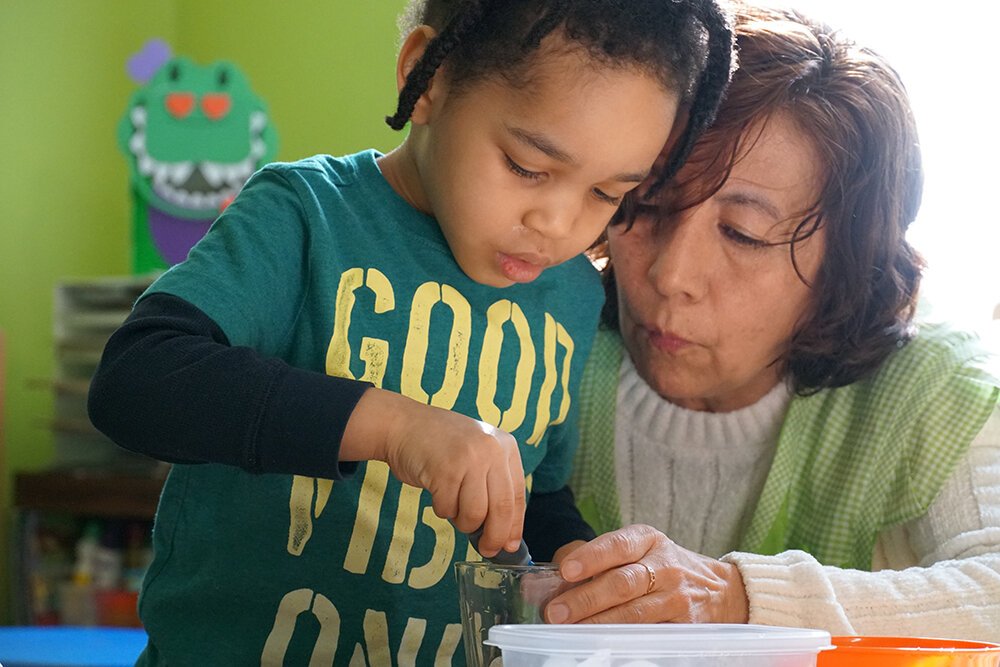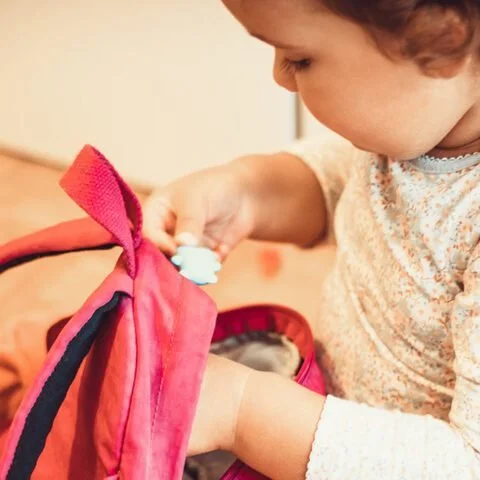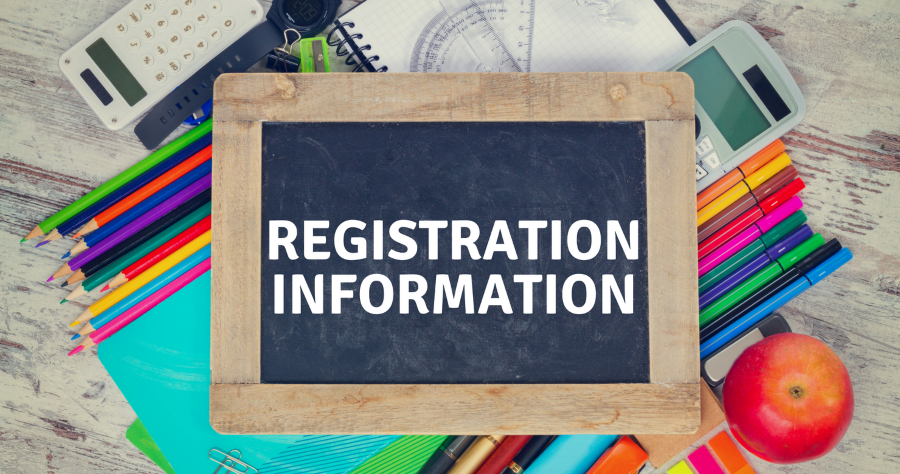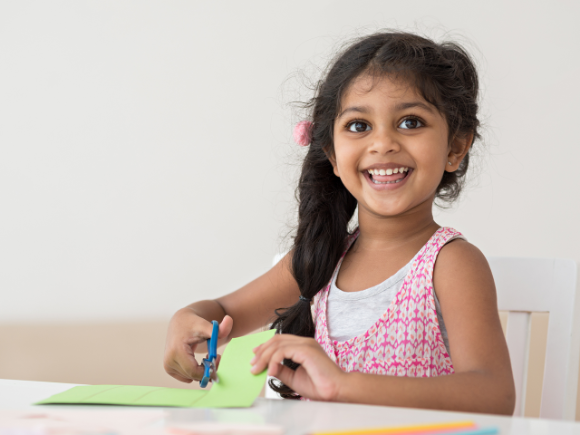School Readiness
For Families and Caregivers
Early Learning Skills
There are important skills that children should have in order to be ready for kindergarten. This includes brain development, gross motor skills (using big muscles to move around) and fine motor skills (using small muscles in hands), language (telling others what you need and understanding what others say), reading skills and problem-solving skills.
Children at this age learn by doing and being hands on with their learning. Through play, children practice and build the skills needed to be ready for school. This is the perfect time to help your child develop a love of learning!
Boost your child’s pre-reading skills by pointing out letters and saying them out loud. Start with your child’s name. Play with magnetic letters, read ABC books, sing letter songs or play letter board games.
Help your child write their name.
Count objects at home and in your neighborhood.
Cook Together! Have your child help you with simple cooking at home.
Pouring, shaking, sprinkling, kneading, tearing, and cutting with a butter knife all help build the small muscles in their hands.
Take a walk around the neighborhood or a park. For variety, add in marching, jogging, skipping, hopping, or even musical instruments to form a parade. As you walk, tell stories, look for colors, count, or play games.
Talk with your child about the things you do together.
Listen to your child’s ideas and answer their questions.
Encourage them to try new activities and problem solve their challenges.
From the Cambridge Office of Early Childhood 2023 Family Guide
PHYSICAL AND SOCIAL EMOTIONAL WELL-BEING
The early years of a child’s life are crucial for their development, and in this section we will explore skills and tools caregivers can use to support their child’s well-being. Physical and Social Emotional Well-Being are two critical aspects of overall health. Physical well-being refers to the state of an individual's physical health, including their ability to function, their level of fitness, and their overall health. Social Emotional Well-Being, on the other hand, is the ability to manage emotions, express feelings safely, and build positive relationships with others.
Physical Well-Being
Children who access ongoing health care have better attendance and are more engaged in learning. Consistent attendance helps children prepare for school. Routines such as handwashing and wearing helmets help children stay healthy and avoid injuries.
Oral Health: Children with healthy teeth are better able to eat, speak, and focus on learning. Daily oral health hygiene and ongoing care from oral health professionals help make sure that children have healthy teeth.
Nutrition: Good nutrition is essential for children's brain development. Children who have access to nutritious food have energy to learn. Providing healthy snacks and meals helps children's bodies grow, giving them what they need to talk, play, and learn together.
Physical Activity and Motor Development: Staying active benefits young children's physical and cognitive development. Activities that get children moving build motor skills that are useful to reading, writing, and math skills.
Sleep and Rest: When children get enough sleep, they can pay attention, remember what they learn, and manage their feelings. When programs schedule times for a nap, rest or quiet activities, children can focus on learning.
Perceptual Development: When children use their senses to explore, it helps them learn about the world around them. A child's ability to see and hear affects their reading, writing, and speech and language skills. Sensory screening helps identify children who may need vision or hearing support.
From the Head Start Early Childhood Learning & Knowledge Center
Social Emotional Well-Being
During the first five years a child’s life, the interaction with caregivers sets the stage for social interaction and emotional response throughout childhood. Infants bond with caregivers, learning to trust these individuals for physical and safety needs. From there, babies interact with others in both subtle and express ways. The way children interact with others in their early environments later influences their ability to make friends, express feelings or frustrations, and resolve conflicts as they begin to navigate the outside world. By monitoring the important social-emotional milestones, you can help ensure that your child eventually develops the aptitude needed to reach their potential in school and everyday life.
From the Stages of Social and Emotional Development by The Warren Center
SCHOOL EXPECTATIONS AND ACADEMIC SKILLS
Understanding school and academic expectations for your child and the rules they need to follow can help ease some of the anxiety of starting school. This section will go over some of the expectations for children entering kindergarten, along with what you can help them learn before the first day to prepare them for a successful start to their academic journey.
